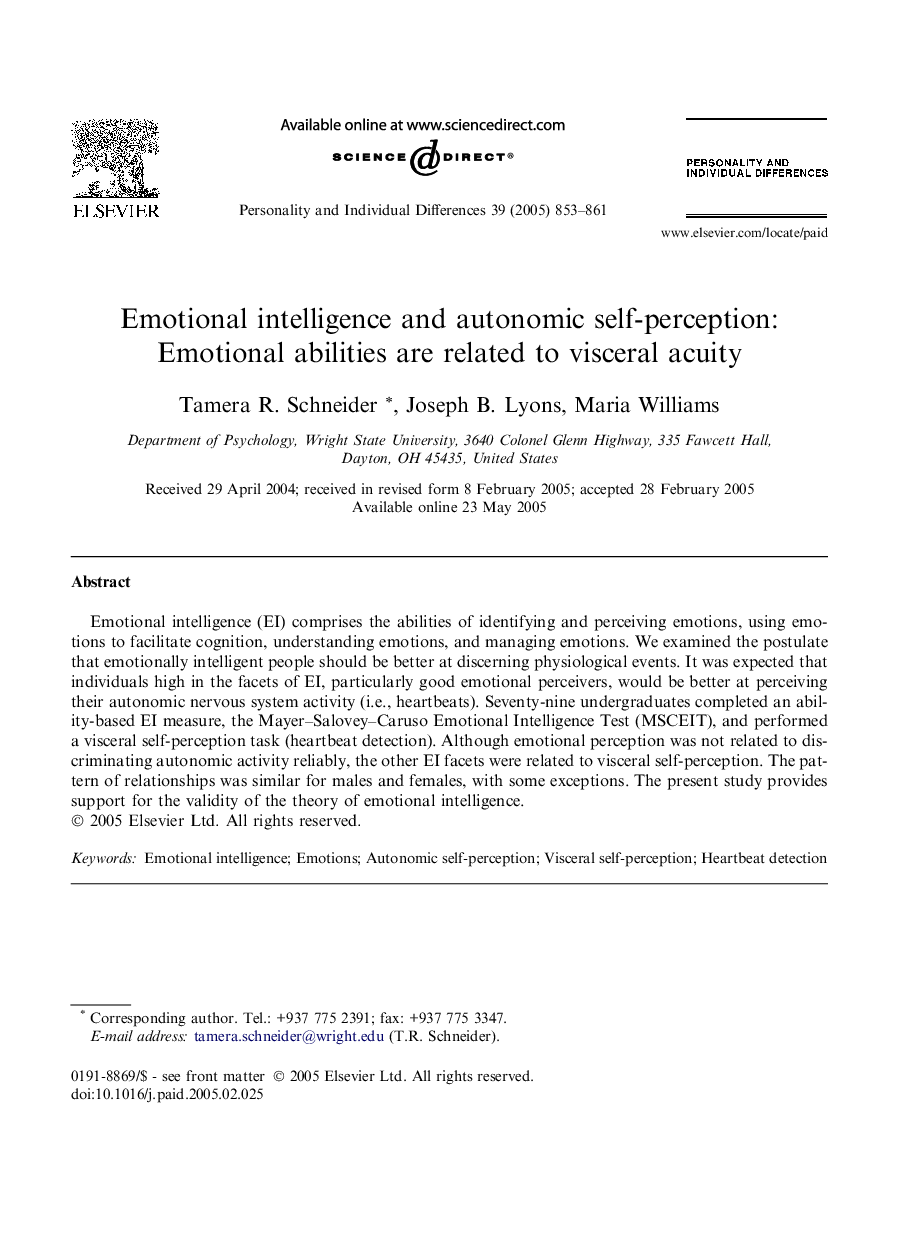| Article ID | Journal | Published Year | Pages | File Type |
|---|---|---|---|---|
| 10440897 | Personality and Individual Differences | 2005 | 9 Pages |
Abstract
Emotional intelligence (EI) comprises the abilities of identifying and perceiving emotions, using emotions to facilitate cognition, understanding emotions, and managing emotions. We examined the postulate that emotionally intelligent people should be better at discerning physiological events. It was expected that individuals high in the facets of EI, particularly good emotional perceivers, would be better at perceiving their autonomic nervous system activity (i.e., heartbeats). Seventy-nine undergraduates completed an ability-based EI measure, the Mayer-Salovey-Caruso Emotional Intelligence Test (MSCEIT), and performed a visceral self-perception task (heartbeat detection). Although emotional perception was not related to discriminating autonomic activity reliably, the other EI facets were related to visceral self-perception. The pattern of relationships was similar for males and females, with some exceptions. The present study provides support for the validity of the theory of emotional intelligence.
Related Topics
Life Sciences
Neuroscience
Behavioral Neuroscience
Authors
Tamera R. Schneider, Joseph B. Lyons, Maria Williams,
